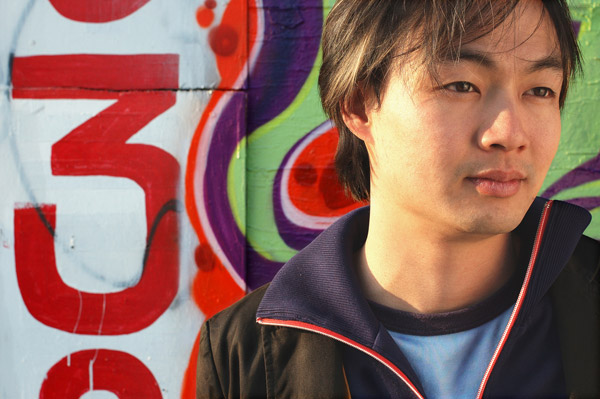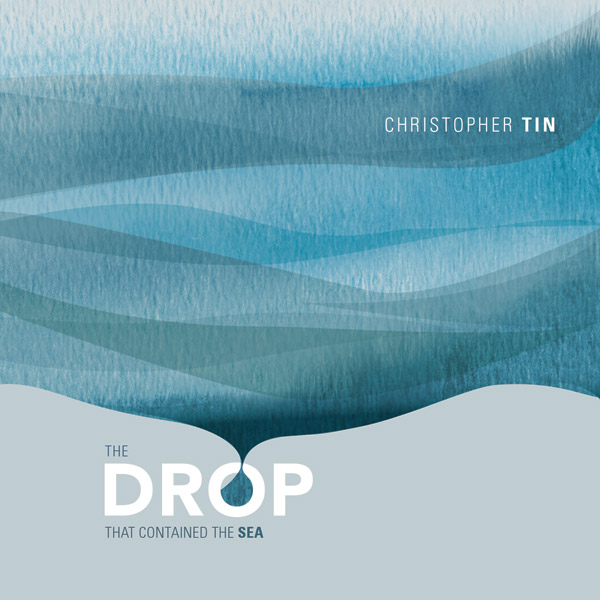Chinese-American composer lauds classical music in era of pop songs
Updated: 2014-04-23 05:49
By AMY HE in New York (China Daily USA)
|
||||||||
|
|
Christopher Tin got his start in music when he was young and learned to play an array of instruments, ranging from the piano to the trumpet to the guitar. But it wasn't until he wrote a musical in high school that he got a glimpse of what it felt like to be on the other side of music, composing.
"I really got a taste of what the whole creative process was like, to conceive something like that and I really enjoyed it," Tin told China Daily. "At that point, I thought, 'You know what, this is what I want to do. I think I'm best at this and I enjoy it the most, so let's do it.'"
 |
|
Chinese-American Christopher Tin recently premiered his latest work "The Drop That Contained the Sea" at Carnegie Hall in New York. The two-time Grammy award winner will be releasing an album in May. |
That instinct has served the 37-year-old well. Tin has picked up two Grammy awards for his last album Calling All Dawns, which named Best Classical Crossover Album and Best Instrumental Arrangement Accompanying Vocalists at 2011's Grammy awards.
"It was a very surreal experience, and it really didn't sink in until the following year when I was sitting at the awards again, just as a spectator, watching all these people I know not win. I can't believe I made it through," he said.
 |
|
Two-time Grammy Award winning composer Christopher Tin will be releasing his next album, "The Drop That Contained the Sea", on May 8. |
Tin was recently in New York performing a sold-out show at Carnegie Hall for the world premiere of The Drop That Contained the Sea, his next album which will be available on May 8. The album, which took almost two years to put together, centers on a theme of water and the way it flows through the world. The collection of 10 songs in 10 different languages follows the flow of water, taking listeners from cloud to sea.
"I just finished my first song cycle maybe five years ago. That one — Calling All Dawns — was about the cycle of the sun, rising and setting, and rising again. I was thinking about other natural cyclical phenomenon and the water cycle sort of popped up to my mind," Tin said about the inspiration for his latest work.
The pieces began as commissioned work for different orchestras and choirs, but Tin said he had an idea throughout the process that he would eventually stitch the pieces together into one album about water. Because each of the pieces was sung in a different language, Tin traveled extensively to perform and record with different orchestras around the world, which included going to Turkey, Bulgaria and South Africa.
Tin premiered one of the movements at the Forbidden City Concert Hall in Beijing, where he performed with youth music students — in 300-membered choir and 100 in the orchestra — as a featured artist of the annual International School of Choral Music Society Festival.
He later conducted and recorded all the water-themed pieces at Abbey Road Studios in London, the recording studio where the Beatles recorded almost all their albums. Tin said he was adamant about recording his work, an opportunity that many classical composers don't have.
"I think a lot of times composers get commissioned to do a work and then they write a work that basically doesn't see the light of day afterwards. It doesn't get recorded and it's kind of disappointing to the commissioner because they've helped bring this work into the world, yet no one is hearing it outside of a couple of live classical concerts," he said.
Classical music is already a niche genre compared to other more easily accessible forms of music, getting "out-muscled" by the Rihanna's and the Katy Perry's of the day, and it's important for classical musicians to leave a mark, Tin said.
"The format of classical is not conducive to our pop culture way of consumption. Pop culture and radio thrive on three-minute pieces with repetition and catchy hooks. Classical music is longer, it takes time to develop, it's a lot more intricate," he said.
People can listen to classical music over and over again because there's a lot of depth to it, he said, but it doesn't have the upfront impact that a three-minute pop song would have and gets crowded out by other genres that thrive on that.
"I think there are a lot of things that work against it in terms of mainstream adoption. But by the same token, I still think it's the most sophisticated form of music out there," said Tin.

 College ping pong lures Chinese students
College ping pong lures Chinese students
 McDonald's will make over mainland stores
McDonald's will make over mainland stores
 Chinese reporters shop till they drop in LA
Chinese reporters shop till they drop in LA
 William and Kate visit Australia's indigenous academy
William and Kate visit Australia's indigenous academy
 Obamas host White House Easter Egg Roll
Obamas host White House Easter Egg Roll
 Photo Story: Dying man seeks caregiver for ailing wife
Photo Story: Dying man seeks caregiver for ailing wife
 Wrongly jailed man lands stable job
Wrongly jailed man lands stable job
 Fire erupts in E China appliance plant
Fire erupts in E China appliance plant
Most Viewed
Editor's Picks

|

|

|

|

|

|
Today's Top News
Obama appoints Chinese American to commission
Obama's trip not to 'contain' China
College ping pong lures Chinese students
Chinese biz schools to lure CEOs
McDonald's to make over in China
Chinese American appointed to commission
Chinese reporters shop till they drop in LA
Tesla to power up across China
US Weekly

|

|








